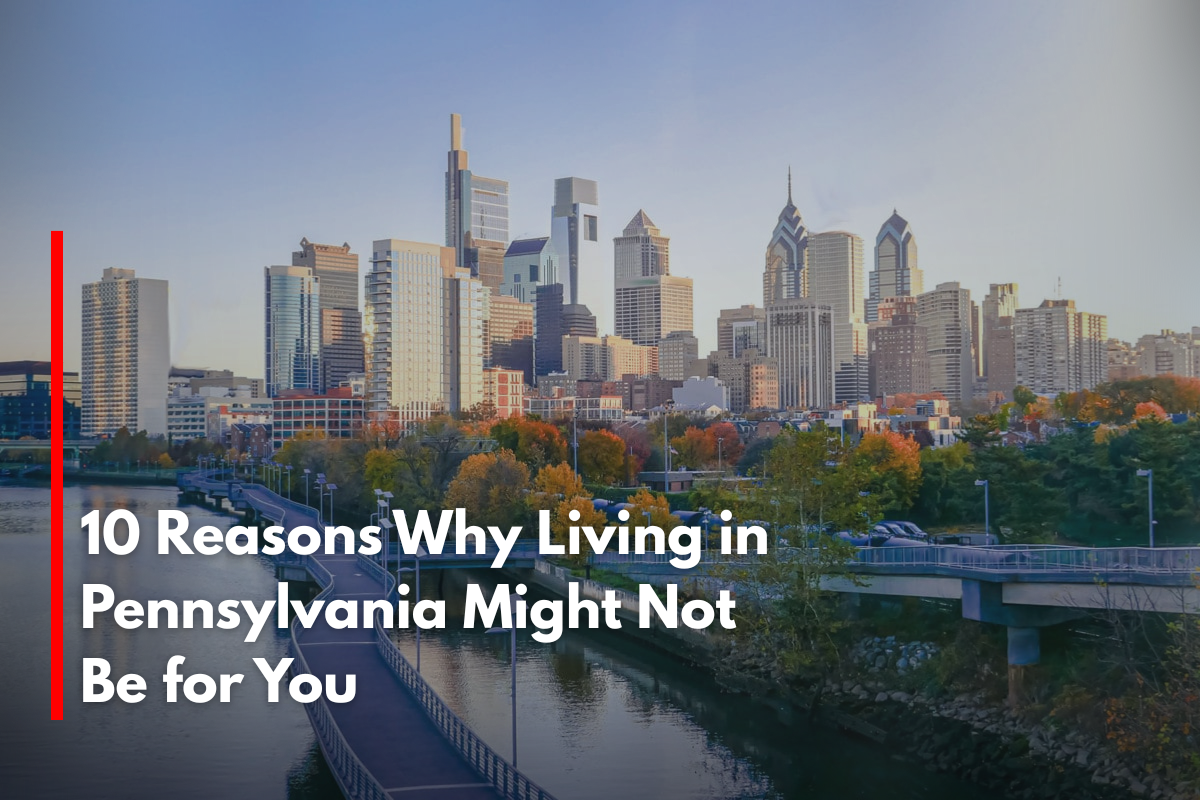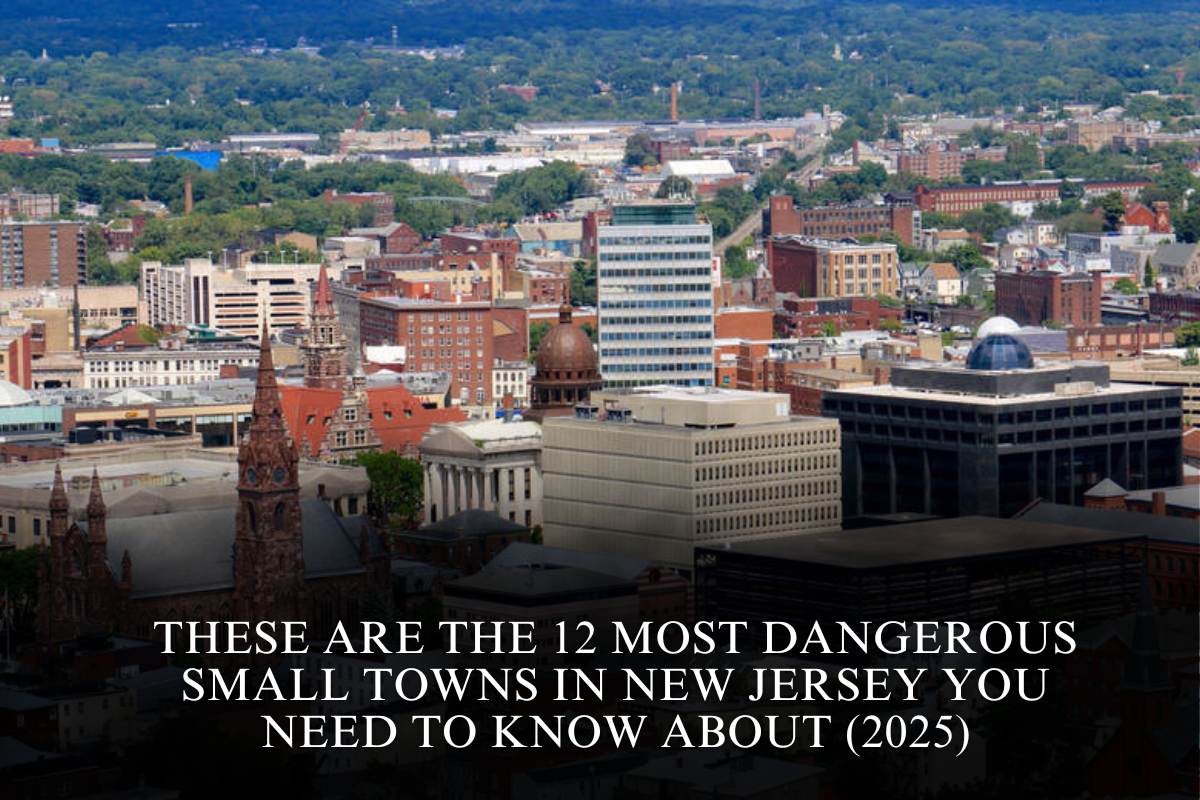Pennsylvania, known for its rich history and beautiful landscapes, is not the perfect place for everyone. Despite its many advantages, there are several factors that might make it less appealing for certain individuals. Here are 10 reasons why living in Pennsylvania might not be the best choice for you, based on various perspectives and concerns.
1. High Local Taxes and Cost Burden
One of the main downsides of living in Pennsylvania is the high local tax burden. With taxes at around 12.33%, the state ranks higher than many other states, including California and Nevada. Additionally, property taxes in Pennsylvania are among the highest in the country. Homeowners, especially in cities like Philadelphia, can find these taxes to be a significant financial strain.
2. Harsh Weather Conditions
The state’s weather can be challenging, particularly for those who prefer milder climates. Winters in Pennsylvania can be very cold, with heavy snowfall, while summers are hot and humid, often exceeding 80% humidity. This can make outdoor activities less enjoyable and increase costs for things like air conditioning during the summer months.
3. Traffic Challenges and Infrastructure Issues
If you’re living in cities like Philadelphia or Pittsburgh, expect to deal with heavy traffic congestion. The state’s infrastructure is also aging, and many roads and bridges are in need of repair, leading to frequent construction delays and frustration for commuters. Whether you’re in the city or traveling along the highways, expect traffic jams to be a regular part of your routine.
4. Crime Concerns in Urban Areas
Certain urban areas in Pennsylvania, like Philadelphia, Chester, and Harrisburg, experience higher crime rates. From petty theft to more serious violent crimes, residents in these cities often face safety concerns. Some neighborhoods in Philadelphia, for example, have elevated crime rates, which could impact the quality of life for many people.
5. Limited Public Transportation
While Philadelphia and Pittsburgh do offer public transportation, the rest of the state has limited options for getting around without a car. This can be inconvenient, especially for those who rely on public transit or prefer not to own a vehicle. Outside of major cities, the lack of effective public transportation makes car ownership almost a necessity.
6. High Insurance and Healthcare Costs
Pennsylvania ranks poorly when it comes to healthcare affordability. With an aging population and a high rate of chronic health conditions, insurance premiums can be quite expensive. The state also has not expanded Medicaid, which makes healthcare even less affordable for low-income residents. This financial burden can be particularly challenging for individuals and families.
7. Prevalent Poverty and Unequal Living Conditions
Poverty is a significant issue in cities like Philadelphia, where a large portion of the population lives below the poverty line. This affects infrastructure, schools, public services, and even the cleanliness and safety of neighborhoods. The disparity between wealthier and poorer areas in the state can negatively impact the quality of life, especially in urban centers.
8. The “Philly vs. Pittsburgh” Rivalry and Political Divides
If you’re new to Pennsylvania, you might find it difficult to integrate into the social scene because of the strong rivalry between the state’s two largest cities, Philadelphia and Pittsburgh. This rivalry extends beyond sports and into social and cultural matters. Additionally, the political climate in the state is polarized between liberal urban areas and conservative rural regions, which can create tension in conversations and community relations.
9. Annoyance with Toll Roads
Pennsylvania has an extensive network of toll roads, which can be both costly and inconvenient. For residents who rely on driving to get around, the frequent tolls on major highways can add up quickly, making travel more expensive and sometimes frustrating.
10. Issues of Racism and Social Division
Like many urban areas, certain parts of Pennsylvania struggle with social issues like racism and segregation. Philadelphia, for example, is one of the most racially segregated cities in the United States. This can create a sense of division and discomfort for some residents, especially those from diverse backgrounds.
Despite its historical charm, beautiful landscapes, and educational opportunities, Pennsylvania might not be for everyone. The high local taxes, harsh weather, traffic, and social divisions can be significant challenges for many residents. Those considering moving to the state should weigh these factors carefully to determine if Pennsylvania’s advantages outweigh its drawbacks for their lifestyle.
Sources
[1] https://www.tallboxdesign.com/why-not-to-live-in-pennsylvania/
[2] https://www.redfin.com/blog/pros-and-cons-of-living-in-pennsylvania/
[3] https://www.youtube.com/watch?v=AZluh8n1E9s
[4] https://thehonestlocal.com/pros-cons-living-pennsylvania-moving/
[5] https://www.youtube.com/watch?v=cs9lbZ192kw







